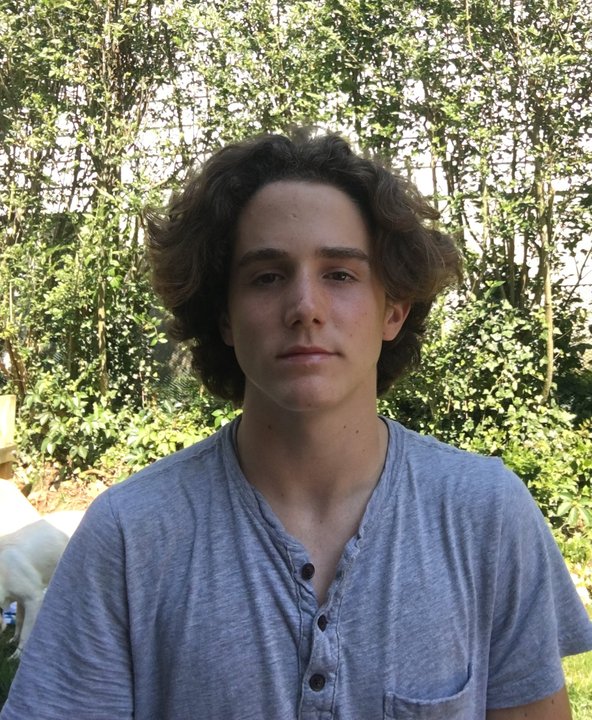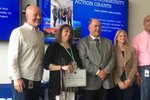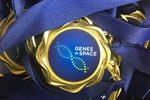GiS Spotlight: Honorable Mention Finn Callahan
Each year, Genes in Space awards 10 Honorable Mentions to student teams whose proposals showed remarkable scientific rigor and creativity. Today, we shine the GiS Spotlight on Finn Callahan (16), who was named an Honorable Mention in 2019. Finn is a student at the Pierrepont School in Westport, Connecticut, and worked with his mentor, Peniel Dimberu, to turn his idea into a winning proposal. Here, Finn shares the story behind his submission and shares advice for future contestants.

Briefly explain your topic: I proposed to test whether a transgenic bok choy plant with a rubisco gene from cyanobacteria will photosynthesize at an increased rate on the ISS.
Why did you choose to participate in Genes in Space? Genes in Space was an after-school program at our school and I wanted to learn more about both astronaut life and space travel.
How did you choose your topic? Prior to entering the competition I had an interest in plant biology. When it comes to plants in space, the first thing that comes to mind is how they can benefit the astronauts on the ISS. In order to make the plants more beneficial, I thought to increase the rate of photosynthesis, thus taking more CO2 from the environment and releasing more oxygen. During my research, I came across the concept of using more efficient rubisco from different organisms, specifically Cyanobacteria, to increase the rate of photosynthesis. In a project done by Myat T. Lin, Alessandro Occhialini, P. John Andrealoic, Martin A. J. Parry and Maureen R. Hanson, they test how the bacterial rubisco works in tobacco plants which gave me the idea of trying the rubisco in bok choy plants on the ISS.
What did you gain by participating in Genes in Space? An understanding of how plants are grown in space, how they not only provide food but also reduce psychological stress from being in space and why the ability to grow plants efficiently is crucial for future space travel.
Do you have any advice for future Genes in Space contestants? My advice would be to first pick a topic you are interested in (for me, it was plant biology) and then find a project within that field.


